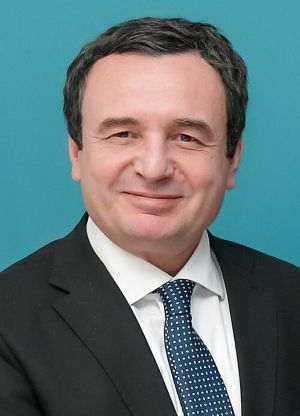Countries in Central and Eastern Europe, the authorities of the European Union (UE) and the international financial institutions will attempt to prevent the mass exit of Western banks from the emerging currencies in the region, as part of a new Vienna Initiative, according to Reuters.
Over these past few days, Vienna has become the pole for top level meetings, for the officials of the banking system and for the authorities of the EU.
The national authorities, the EU institutions and the international financial institutions (the International Monetary Fund, the World Bank or the EBRD) have agreed on Monday to try and conclude a second Vienna initiative, with the main features resembling those of the previous initiative of 2009. No officials of the commercial banks attended the meeting which was held in the beginning of this week.
After Monday's talks, Erik Berglof, the chief economist of the EBRD, said: "We have left this meeting with a remarkable consensus. Now we need to sit down at the table and set the details of the plan together with the private sector".
Nevertheless, on Monday, the meeting had a tense start, according to him. This was due to the discontent of the authorities in the emerging countries concerning some recent measures, such as the ones announced by the Central Bank of Austria, but the talks had a positive evolution, and they have created a stream of sympathy in favor of supporting the region, Erik Berglof said yesterday, in the opening session of the "Euromoney" conference, which was also organized in Vienna, according to Mediafax.
"The crisis in the Eurozone has developed new risks in the financial sectors of emerging Europe, since the beginning of 2011. Market tensions, in particular those of the capital and funding markets, have resulted in significant pressure towards reducing risk in most countries", a press release sent yesterday by the European Commission and the EBRD says.
The institutions warn that without coordination, the outcome would be an excessive and disorderly deleveraging and a credit crisis, the press release also says.
Some of the main financial groups concerned include Erste, Raiffeisen, UniCredit and Belgian group KBC, according to Reuters.
The purpose of the new initiative, which the press release calls "Vienna 2.0", is less ambitious than it was in 2009, because it concerns the slowdown of the pace of reducing exposure and risk to avoid a financing crisis in emerging Europe, rather than maintaining exposure to those markets, according to Reuters.
The banking groups will be invited to the talks, the first meeting with their representatives will be summoned by the European Commission in Brussels, "in the near future", according to the press release.
• Herbert Stepic: We will continue to invest in Central and Eastern Europe
The Raiffeisen International Group is decided to stay on the markets of Emerging Europe, but the pace at which the European Banking Authority wants to impose the consolidation of capital makes this objective increasingly difficult to achieve, said Herbert Stepic, the managing director of Raiffeisen Bank International AG, at the conference in Vienna.
He went on to say: "It is the biggest stupidity ever. We see Central and Eastern Europe as a place where we will continue to invest. We will not run away, because the region has remained Europe's engine for economic growth".
Herbert Stepic warned that the deleveraging process in Eastern Europe, which is expected to lead to withdrawals of 20-30 billion from the European emerging countries, will affect the region's economic growth potential, according to Mediafax.
The CEO of Raiffeisen Bank International AG stressed that the states in Central and Eastern Europe continue to have more sustained economic growth than Western Europe, because these countries are continuing their transformations and the people are in an ongoing process of improvement and reform.
He thinks that the process of adjusting through spending cuts and savings could be counterproductive and lower the region's potential for growth, and he insisted on a certain degree of moderation and on the implementation of and on the continued implementation of the structural reforms together with fiscal adjustments.
Herbert Stepic insisted on the need to improve the legal system in the emerging countries, which would facilitate the foreclosure of loan collaterals, because the lenders want to be sure that they can recoup their money.
• The governor of the Bank of Austria isn't too pleased with a new "Vienna initiative"
Ewald Nowotny, the governor of the Central Bank of Austria and a member on the Supervisory Board of the European Central Bank (ECB), seemed to agree with a collaboration at the supervisory level, together with the international financial institutions and the European Commission, to ensure a stable capital flow to the region, but didn't seem too pleased with a new agreement with a new agreement similar to the Vienna initiative, according to Mediafax.
He said that banks should not underestimate the effects of the implementation of Basel III, which are pushing more towards an Anglo-Saxon business model than towards a continental one. The governor of the Central Bank of Austria also insisted on the need for the local markets of emerging Europe to create a solid capital base.
The meetings of these past two days follow last Wednesday's reunion, of the banking officials of 17 European countries, including Romania, where the main topic of discussion was the proposal of the Central Bank of Austria was to limit the risks taken on by the Austrian banks.
The representatives of the press department of the Central Bank of Austria said that the meeting was "fruitful and constructive", but declined to comment further.
The sources close to last week's meeting said to Reuters that Austria is set to impose the regulations which would enhance the norms designed for the safety of the financial system, by reducing lending by the major Austrian banks in emerging Europe, despite some discontent in the region , and added that the instructions will be published shortly.
In an attempt to keep its top "AAA" rating, in the context of the sovereign debt crisis in the Eurozone and of concern over the exposure of Austrian banks to Central and Eastern Europe, Austria announced new regulations for its biggest banks in November 2011.
The regulations concerning capital and liquidity were proposed by the Central Bank of Austria and the and the Austrian Financial Markets regulator (FMA), and require Erste Group Bank, Raiffeisen Bank International and UniCredit Bank Austria to limit lending in Eastern Europe to 110% of the deposits and financing attracted from local sources, which amounts to making new lines of credit from their parent banks conditional on the financial resources raised from the markets in question.
• Lucian Isar: The Vienna 2.0 initiative is a solution to extend the agony
The drafting of the Vienna 2.0 initiative suggests an increased level of stress from the authorities concerning the exposure o of banks in the region, economic analyst Lucian Isar considers.
He said: "In reality, just like the first initiative, it is not the market solution (ed. note: the Vienna 2.0 Initiative), which would re-establish a healthy dynamic in the area, but rather a solution to extend the agony.
The postponing of the use of market mechanisms such as bankruptcy and the appearance of new players does nothing but delay the economic recovery, but gains time favoring the personal terms of the officials and politicians".
•
• Laurian Lungu: The coordination attempts to avoid the major fluctuations due to capital outflows
The new "Vienna initiative" is not a measure that proves the panic of European authorities, but rather is a measure which is intended first and foremost to focus on coordination, says Laurian Lungu, managing partner at "Macroanalitica".
He said: "It is better to prevent than to get to the point where things get out of control. It is far easier to prevent the negative effects. When I am talking about coordination, I am referring to the agreement on common financing levels. (...) This coordination attempts to avoid the major fluctuations due to capital outflows".
Laurian Lungu said that is important that the new Vienna initiative exists, because it can create certain benchmarks and provide some guidelines.
•
The meeting held in Vienna on Monday was attended by officials of the authorities from the home countries of the banking groups and from the countries where they have subsidiaries, officials of the European Commission, of the European Banking Authority, the European Systemic Risk Council, the IMF, the EBRD and the World Bank.
The NBR was represented by deputy governor Cristian Popa and by an official of the Oversight Department of the NBR.
•
In the spring of 2009, the governments and the central banks in the region, the authorities of the EU, together with the IMF, the World Bank, the EBRD, the EIB and other relevant institutions, have agreed with the biggest financial groups in Eastern Europe, including Erste, Raiffeisen and UniCredit, not to lower their exposure to the emerging markets in the context of the world financial crisis of 2008-2009. The commitment made in 2009 expired in April 2010.
Since then, banks in the Eurozone have been under pressure to sell off their assets to increase their capital adequacy, to lower their risk and to focus on their home markets, whereas the ability to raise financing using the equity markets has diminished.


















































